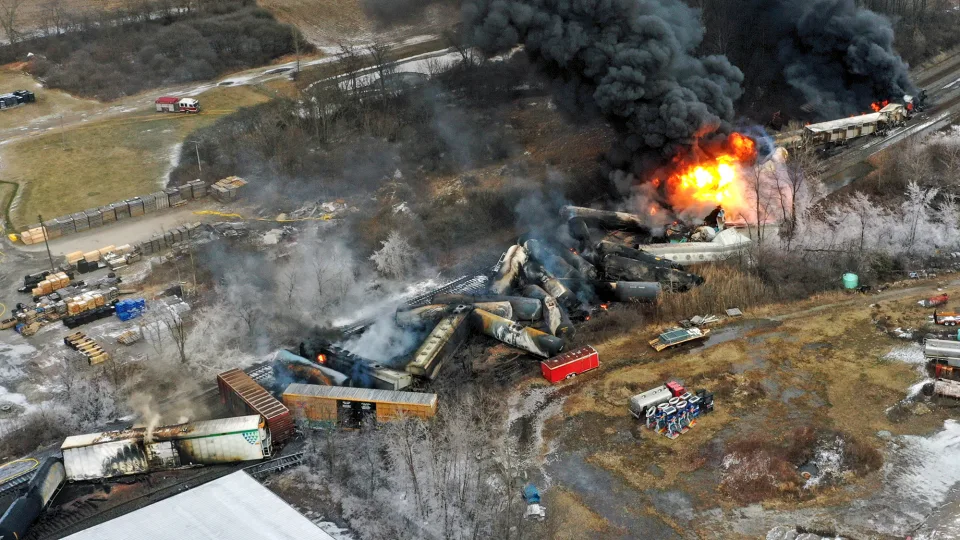Train Derailment Disaster Threatens State of Ohio
On Feb. 3, an eastbound train heading through Palestine, Ohio was derailed due to a mechanical malfunction. Many of the train cars on board were carrying hazardous materials, such as vinyl chloride, butyl acrylate, ethylene glycol, isobutylene, and ethylhexyl acrylate, which spilled. The chemicals were then set ablaze to get rid of the contaminants, and heavy chemical smog covered the entire village. Most of these materials were found in the soil, air, and water (Ohio River). The main source of water for the residents of Palestine is the Ohio River. The chemicals that leaked into the water are known carcinogens and are harmful if consumed by humans and animals alike. The residents of Palestine were forced to evacuate and leave behind their homes and livelihoods while authorities figured out the consequences and impact of the disaster.
The Environmental Protection Agency (EPA) responded to the incident with efforts to monitor the derailment’s effects. While the EPA was under pressure to provide the citizens with answers about potential threats to the environment, they took the blame off themselves and forced the train owners to take responsibility. Norfolk Southern, the cooperation that owns the derailed train, released a statement on Feb. 21, saying, “They will pay for cleaning up the mess they created and for the trauma they’ve inflicted on this community of Palestine, Ohio.” Residents of Palestine and surrounding areas expressed that the statement was not enough. The EPA plans to take legal action against the Norfolk Southern corporation due to endangering the welfare of the environment and the community.
After returning to their homes, residents are complaining of a strong chemical smell in the air. Some residents are documented as having exposure symptoms, such as headaches, nausea, and dizziness. The community of East Palestine is worried about the long-term health effects of the disaster on their health, such as cancer.
The chemical spill has made its way through the Ohio River, killing teams of native fish. Local farmers are worried about their crops and the well-being of their livestock. We have seen the effects of chemical spills in the past and what it does to the environment. Chemical spills can destroy habitats of native wildlife. So far, 3,500 fish have been found dead and are washing up in local waterways. Residents also say that their pets are suffering and developing the same physical symptoms that they are.
In times like these, corporations need to be held accountable for the threats that they pose to animal life, local flora and fauna, and the environment. The safety and well-being of the East Palestine residents have been disregarded. While the long-term effects of chemical exposure are unknown, people are suffering emotionally.



